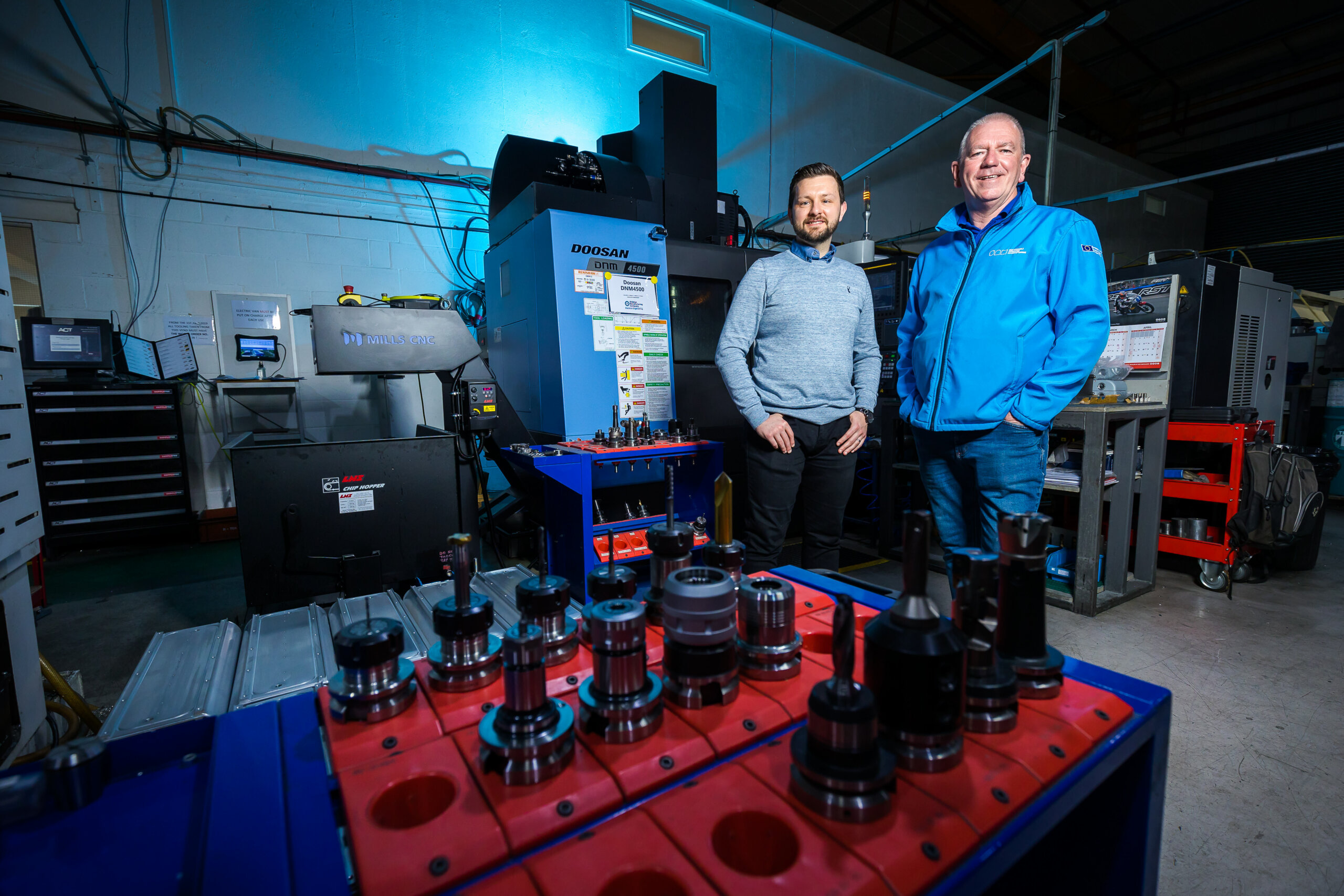A North East company has created an innovative on-street electric vehicle charging solution, following a record-breaking year for EV car sales.
Rediviva Ltd, a research, design and development company, explores alternative technology that will lead to cleaner energy and a low carbon future, including charging solutions to increase the adoption of zero emission vehicles.
With the EV car revolution well underway in the UK, Rediviva has been exploring ways in which drivers with no driveway can easily charge their vehicles from home without leaving a cable running across a public footpath, causing a trip hazard.
Rediviva came up with the idea to create ‘zapkerb’, an easy install, low-cost solution that allows the cable to be enclosed, therefore keeping the path free of any obstructions while a vehicle is being charged.
During the early stages of the project, Rediviva contacted the Sustainable Advanced Manufacturing (SAM) Project at the University of Sunderland for assistance with research and development, to help drive forward the creation of a prototype.
Stuart Duckett, managing director of Rediviva, said: “We received support from the SAM Project to help develop a prototype, including technical expertise and assistance with the initial design. The team helped us create a 3D printed prototype, which allowed us to effectively assess the concept.
“The support was fantastic. It was great to have that facility and expertise, and it helped us progress quicker than we would have done, taking the project to proof of concept and beyond.”
Since creating the 3D printed prototype, Rediviva is now in talks with partners to help manufacture, distribute and export the product, and has also contacted local authorities to open up meaningful conversations about street to home EV charging across the UK.
Stuart added: “We’re hoping to launch this year and we’re currently looking at revised versions of the prototype, as we look to constantly improve and refine the product following evaluation in use.
“The EV market is growing massively, and it’s expected to double this year. These solutions are needed not just in the UK but worldwide, so we’re hoping once we can take the product to market, we can export it.”
According to the latest vehicle stats, EV car sales increased by 76.3% in 2021, and as of January 2022, there was an estimated 400,000 Battery EV cars and over 750,000 plug-in hybrids on the road in the UK.
Ian Barrett, Computer Aided Design and Engineering Specialist from SAM Project, said: “Rediviva is a great example of how innovative thinking, design and manufacturing can solve real life problems and have the potential to change industries. It’s been fantastic to work with Stuart and the team to create a prototype that we’re confident will make the switch to electric vehicles easier for many people.”
The Sustainable Advanced Manufacturing (SAM) Project is a £10.9m collaboration between the European Regional Development Fund (ERDF), the University of Sunderland and the Northern Powerhouse Initiative and Industry, supporting the implementation of product and process development and the introduction of technology within the SME manufacturing base in the North-East Local Enterprise Partnership (NE LEP) area.
SAM offers four key support functions to businesses gearing up to grow, including access to technical expertise, with industrial specialists using their skill and expertise to guide businesses through the process of understanding and implementing technology; R&D, with a team of researchers able to support with the development of new products and processes; factories and facilities, including access to £1m of industry-leading advanced technology and equipment; and its grants scheme, that offers financial assistance to qualifying businesses.










